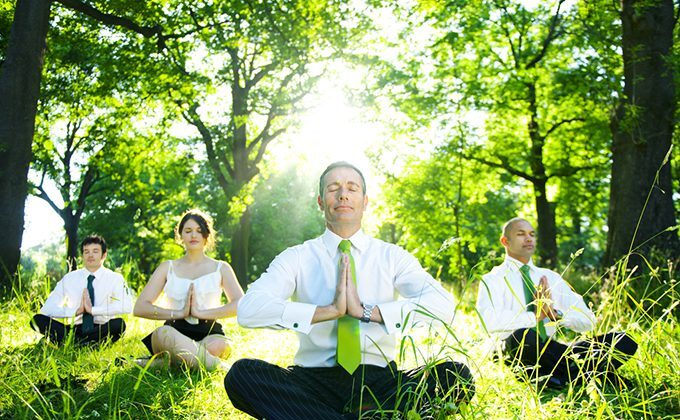Walter Isaacson’s bestselling biography of Steve Jobs is full of examples of the Apple founder being selfish, rude and downright nasty. In fact, in the mid-1980s, Jobs was so out of control that no one wanted to work with him, and he was eventually kicked out of the firm he had set up.
The irony is that Jobs, as a good hippie, professed a lifelong interest in Zen Buddhism and meditation—all the things that today get lumped together as “mindfulness.” He even spent several months in India on a quest for enlightenment after dropping out of college.
In the end, though, perhaps Jobs’ enthusiasm for Eastern spiritualism expressed itself more in the Zen-inflected, minimalist products he helped to design than in the way he behaved at work.
But what about the rest of us non-geniuses? Can Eastern spiritualism teach us any lessons relevant to the workplace?
I think it can.
Buddhist thinking can help us become calmer and more mindful of others. It can equip us to withstand the stress of taking difficult decisions or riding out market turbulence, while making us more empathetic colleagues or bosses.
Here are the three big lessons I myself got from Buddhism.
1) Don’t be greedy.
Many of us are greedy for wealth, influence and fame. We obsess about earning more money, getting more power, becoming better known. Buddhism, however, tells us that we can’t take these worldly things with us when we die. Learning not to desire them is the secret to peace of mind. It frees you to start thinking about your job in terms of how it benefits other people, rather than you yourself.
2) Everything is changeable—just deal with it.
Globalization, the mobile internet rising, new competitors appearing, key people quitting—the world of business never stands still and is always presenting us with new challenges. Stressful? Sure, but if change is a given, then what’s the point in getting upset about it? Accept what fate dishes out. Deal with the world as it is, not as you would like it to be.
3) Value encounters. Cherish relationships.
According to Buddhism, all the encounters we have with other people have meaning. They happen for a reason. That is why you should cherish your relationships with the people you meet and work to make sure that every encounter leads to positive results.
Some leading business figures in Japan are serious Buddhists. Take Dr. Kazuo Inamori, the founder of electronics and ceramics company Kyocera. After resigning the Kyocera chairmanship in 1997 at the age of 65, Inamori was ordained a monk. (Inamori made the headlines again in 2010 when he led the restructuring of the bankrupt Japan Airlines. At seventy-eight years old, Inamori did such a good job that he transformed Japanese attitudes to the concept of restructuring, showing people that it could be a positive thing when done properly!)
Konosuke Matsushita, the late founder of Panasonic often hailed as the “father of Japanese management,” was another committed Buddhist. Matsushita often arranged for monks to visit him for discussions at his office and devoted his life—as John Kotter explains in his book Matsushita Leadership—to figuring out how businesspeople could help to create “a society that is spiritually rich and materially affluent.”
I was lucky enough to have one such Buddhist businessman as a mentor. His name is Rikihiro Madarame, and he came from a family of temple priests. For various reasons, Madarame could not take over the family temple and went into business instead. In 1970 he set up a power-supply manufacturing company, which went public in 1991 and was eventually taken over by TDK.
Madarame, who is an investor in one of our VC funds, took me to stay in an ancient temple on Mount Koya, the headquarters of the Koyasan Shingo sect of Japanese Buddhism and a UNESCO World Heritage Site. On the two-hour train ride from Osaka, he made me watch a 160-slide PowerPoint presentation on Buddhism. That presentation, and the time we spent together in the more than 400-year-old temple, inspired me to go to India, where I was taught by the swami of an ashram near Mumbai.
A few years ago, I was one of a group of CEOs interviewed by GQ Japan. All of us were asked the same question: What is most important for you, and what is it that you want the most? I responded that the most important thing for me was being calm and mindful, and that I wanted nothing, because I had learned to be satisfied with whatever I had.
Thanks to the lessons of my various mentors and gurus, I believe I have become a little more mindful and less greedy, more willing to accept change, and more considerate of the people with whom I work and whom I encounter in the course of business. The result, I hope, is an office that’s a serene and harmonious workplace for everybody.



